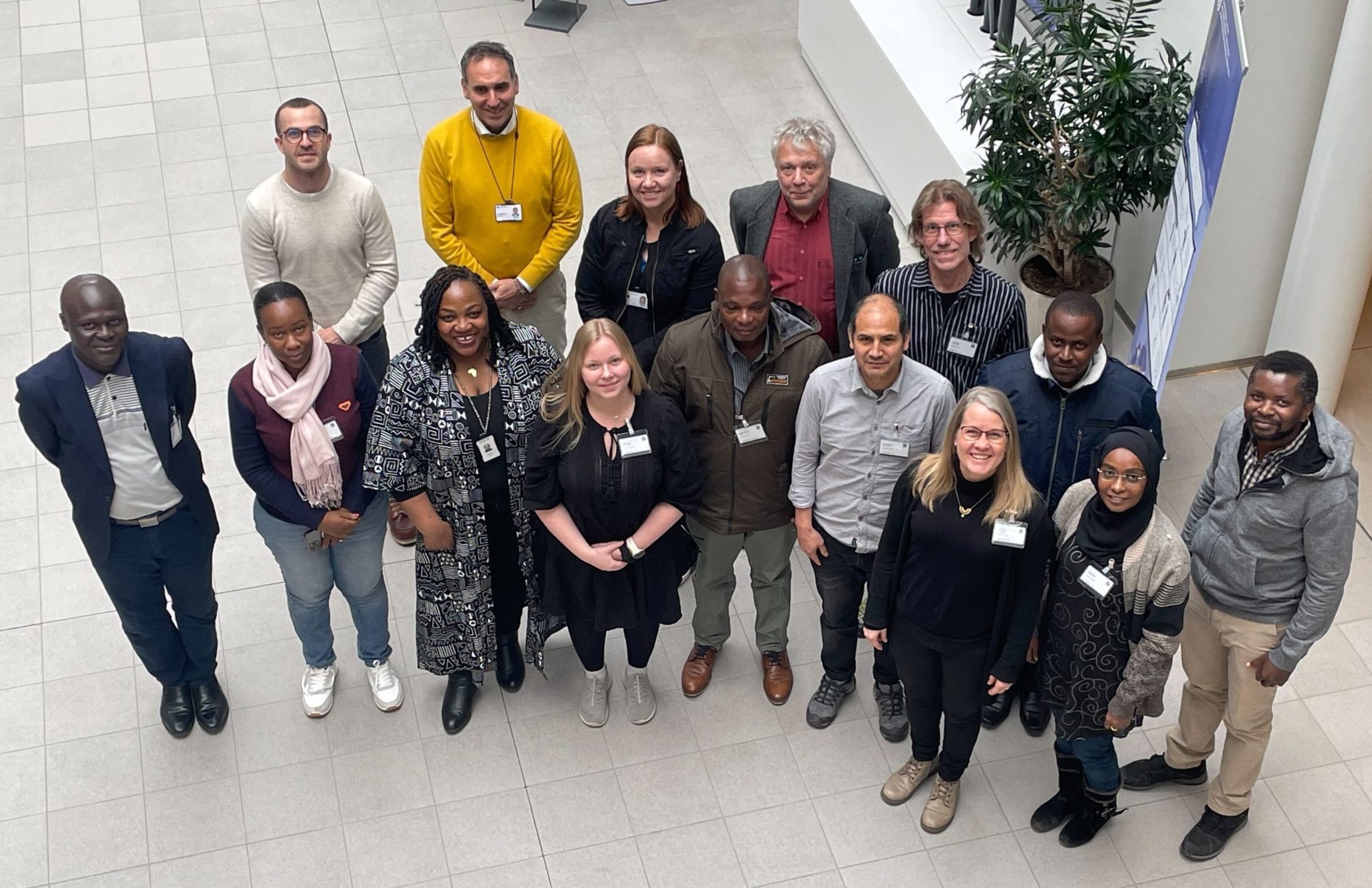Earlier in April 2024, KADI partners from the Resilience Academy visited the premises of Finnish Meteorological Institute (FMI) in Helsinki. The FMI is housed on the same building as the ICOS Head Office, therefore this was the ideal opportunity to hear about the FMI’s activities in Africa as well as share ICOS’ work in KADI. The meeting began with an introduction to the work done in ICOS and the work done in KADI. This was followed by presentation of the different projects represented.
The Finnish Meteorological Institute’s regional project FINKERAT aims to increase East African societies’ preparedness for extreme weather events and to improve air quality monitoring in Kenya, Rwanda and Tanzania. The project aims to increase the capacity of meteorological institutes in Kenya, Rwanda and Tanzania to provide more efficient and timely weather forecasts, early warning services and air quality services for the benefit of communities, administrative institutions, the economy and political decision-makers. It develops community-based early warning systems and proactive approaches together with the Finnish Red Cross and the Red Cross Societies in Kenya, Rwanda and Tanzania.
The Climate Risk and Early Warning Systems (CREWS) initiative is a financial mechanism which funds projects in the Least Developed Countries (LDCs) and Small Island Developing States (SIDS) to establish risk-informed early warning services. CREWS is coordinated by the World Meteorological Organization (WMO) and includes Burundi, Kenya, Rwanda, Tanzania, South Sudan and Uganda. CREWS works directly with countries to increase the availability of and access to early warning systems.
Based on the discussions and presentations, the possible areas of collaboration are:
- Encourage the uptake of KADI’s approach by the WMO. For example by showcasing the Resilience Academy’s approach to climate services and citizen science
- Develop a common curriculum for climate science.
- Seek collaboration with the DARAJA project. The aim of the DARAJA project is to co-produce weather and climate information services, which are particularly relevant to urban informal settlement communities in Tanzania (Dar es Salaam) and Kenya (Nairobi).
- Joint initiatives for scaling up or broadening successful African climate services.
- Plan for joint activities, for instance at the next KADI Annual meeting.
It has been estimated that improved weather and climate services, and early warning systems may benefit up to 130 million people (directly and indirectly). KADI project is committed to the development of climate services in Africa and to the collaboration with other projects and initiatives in this field.


